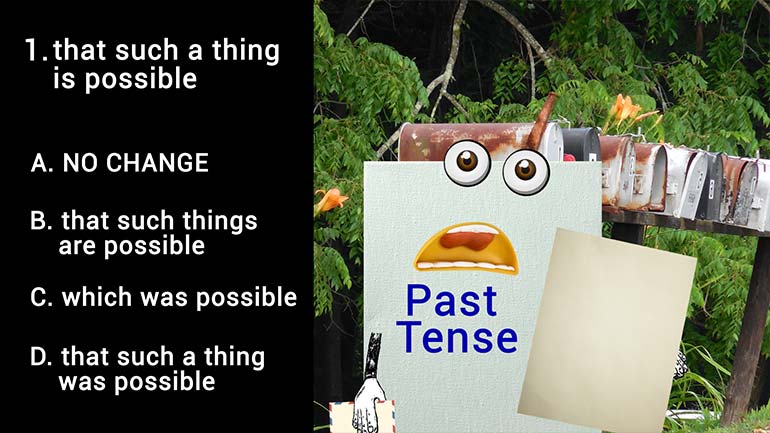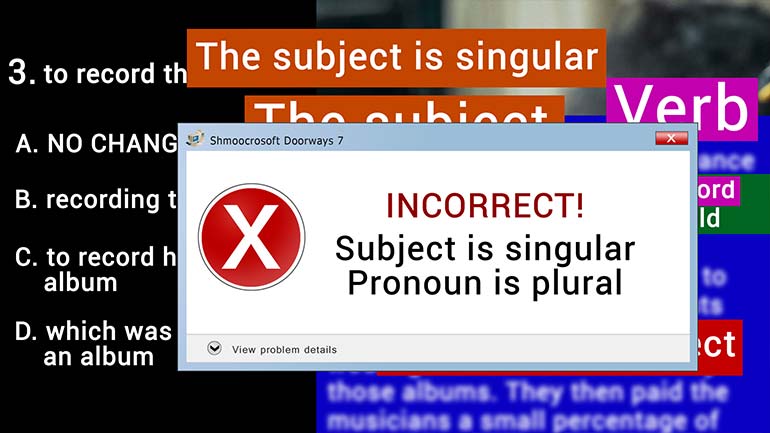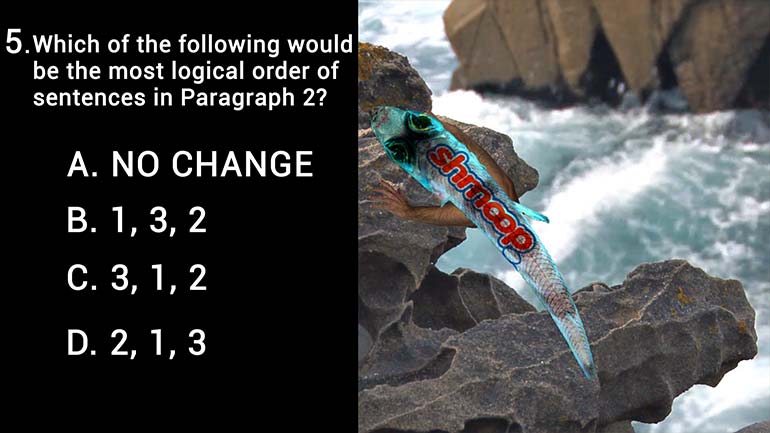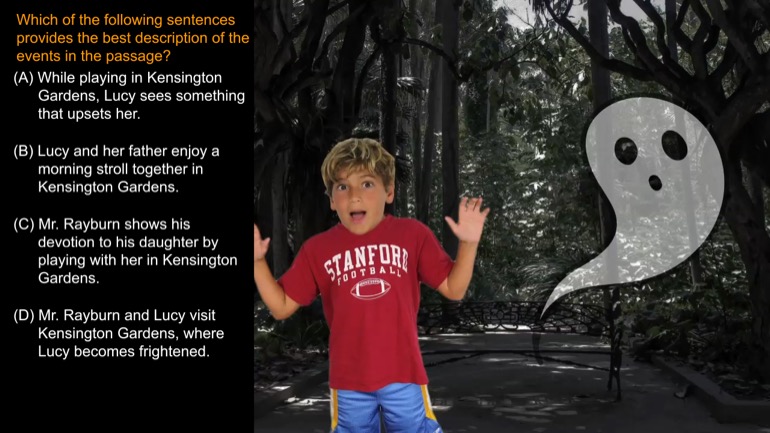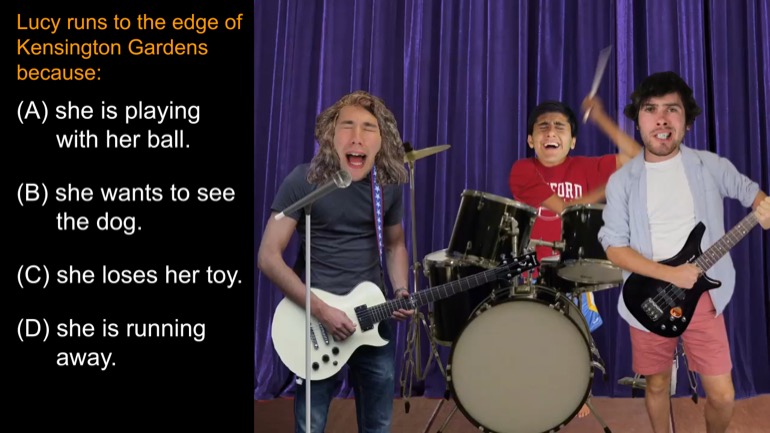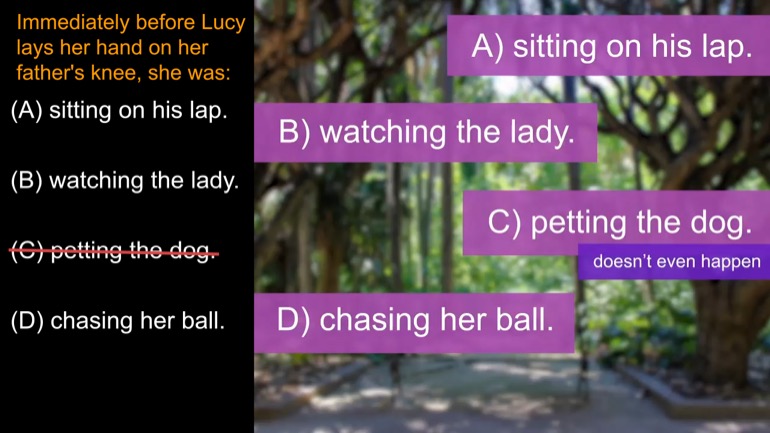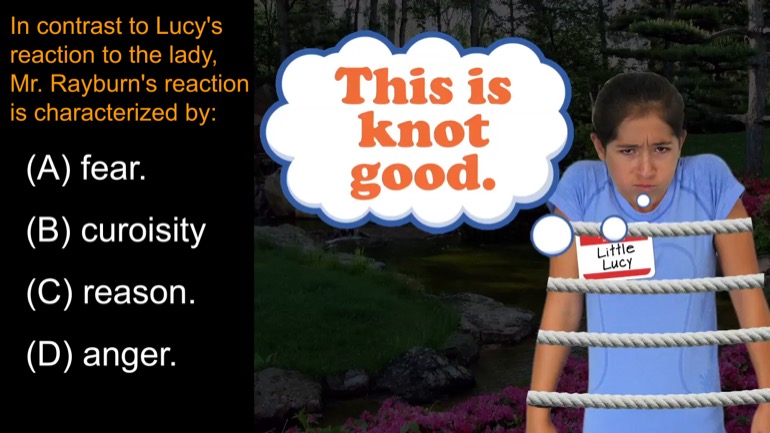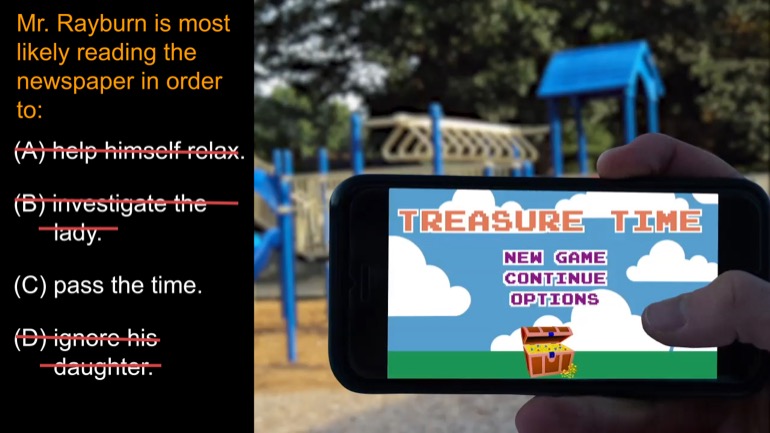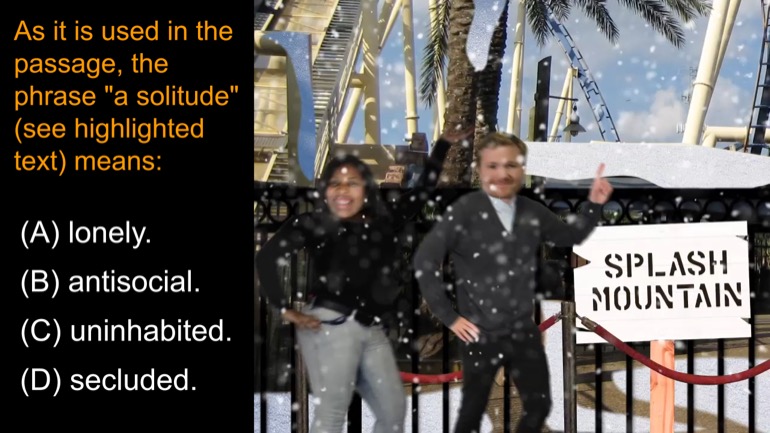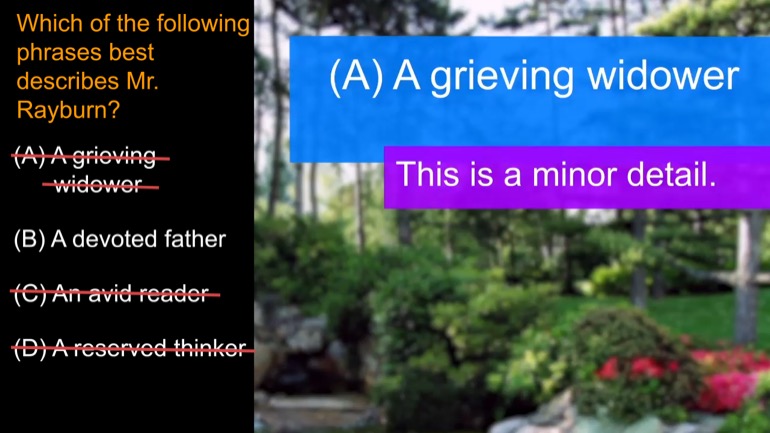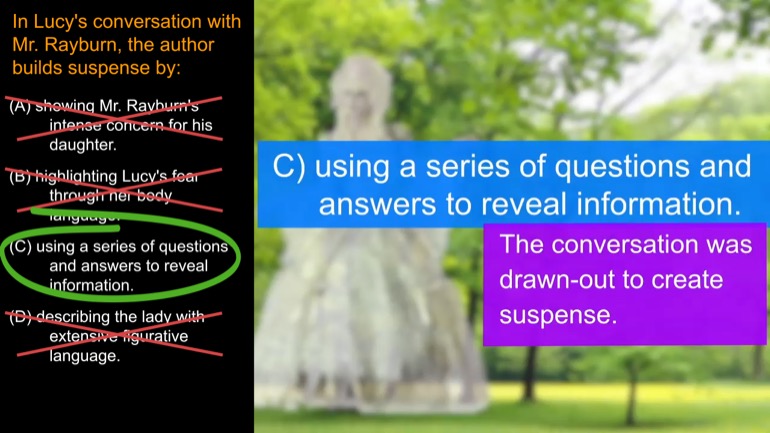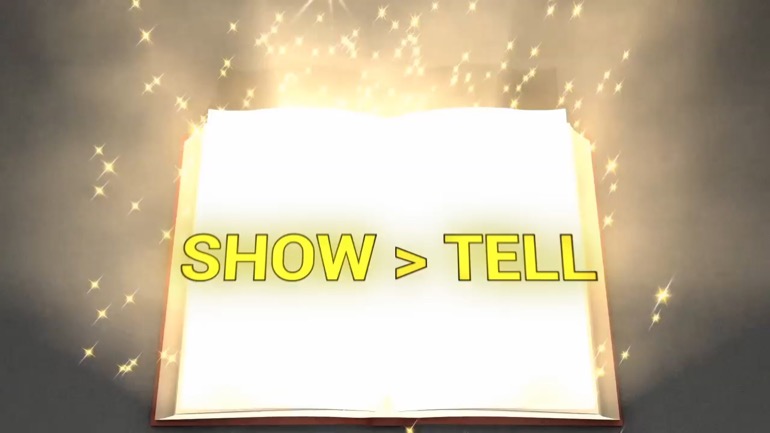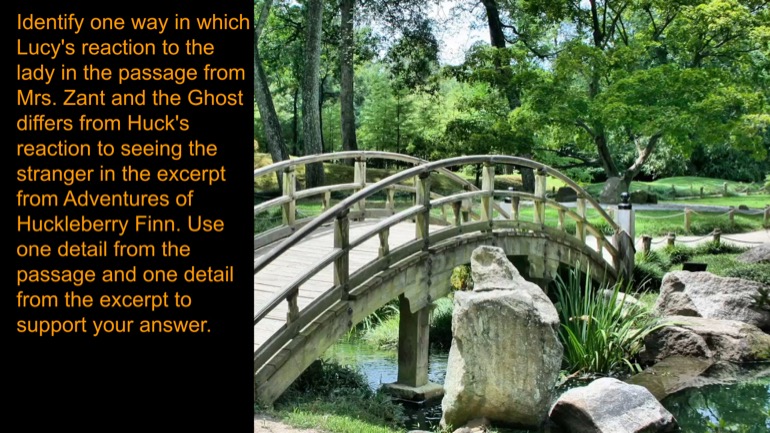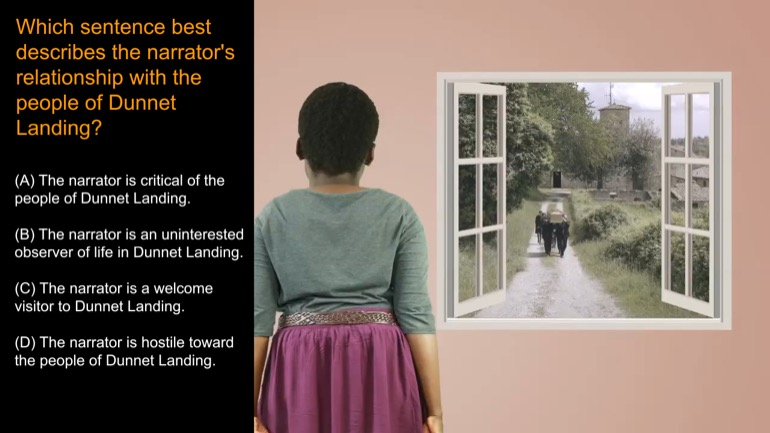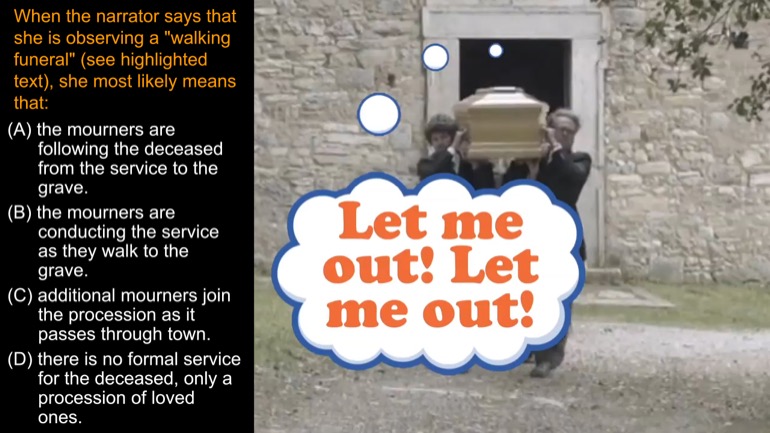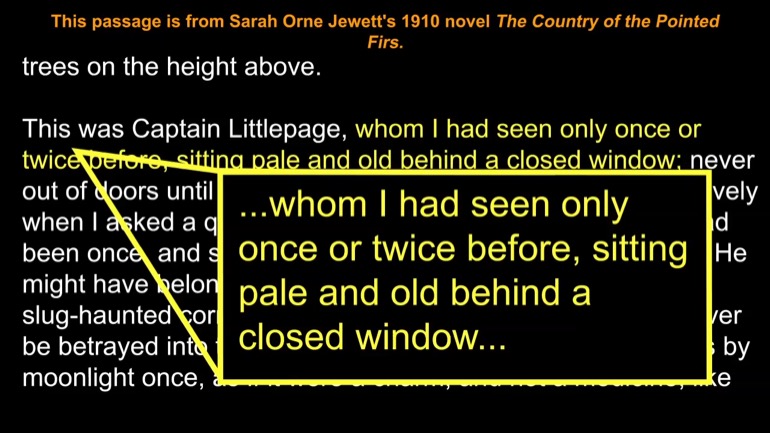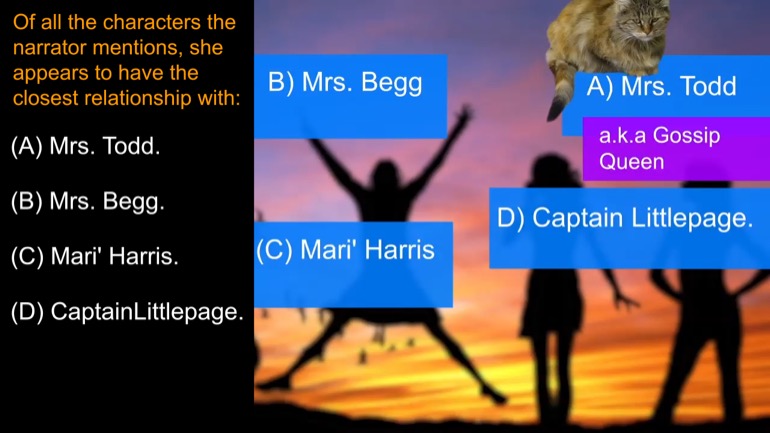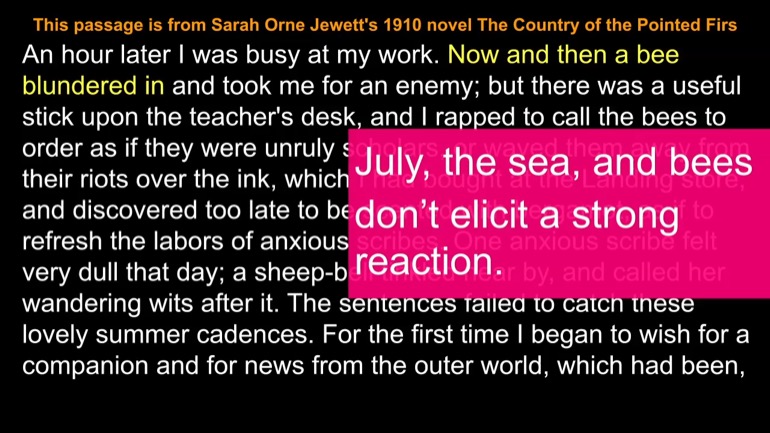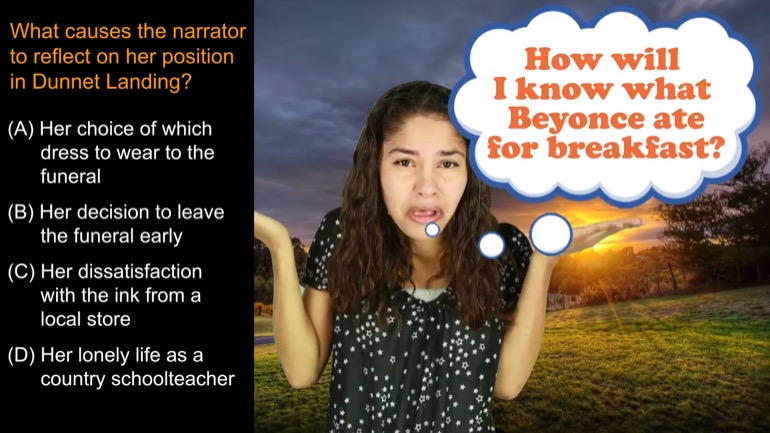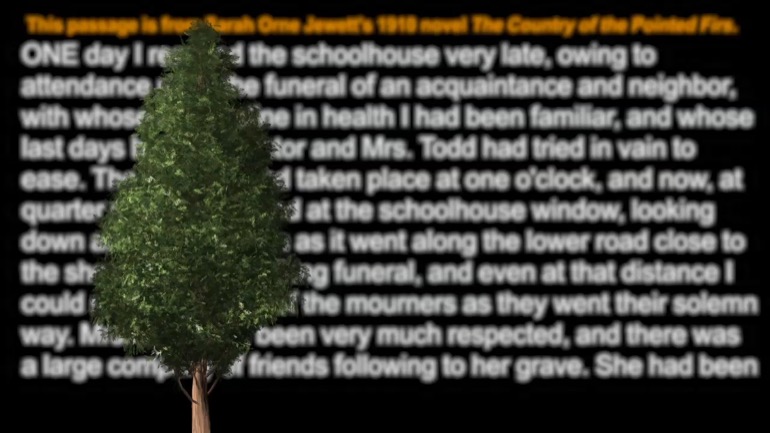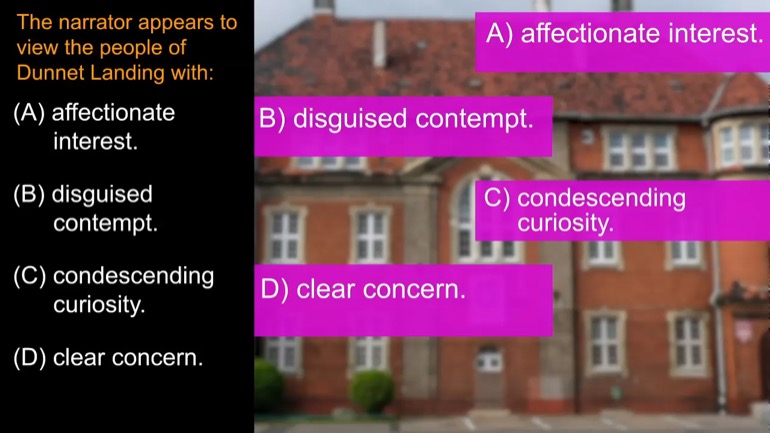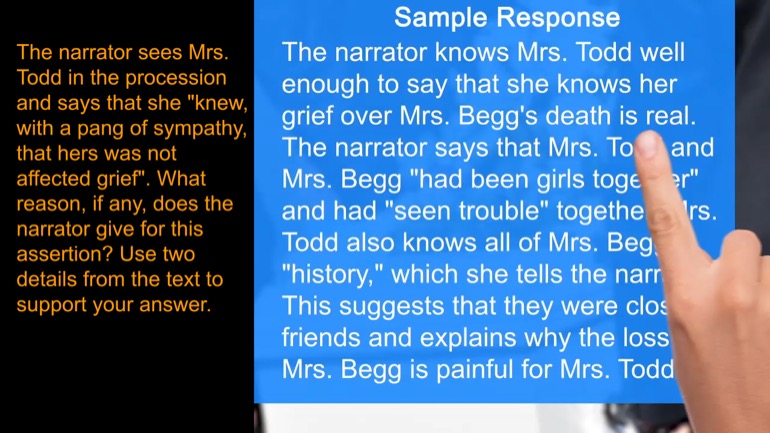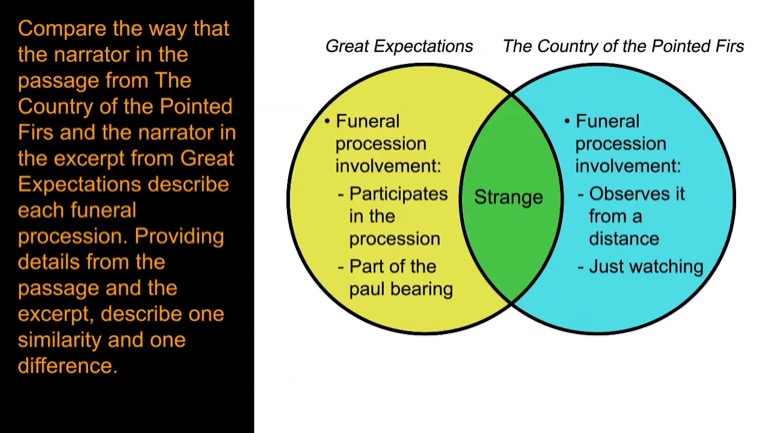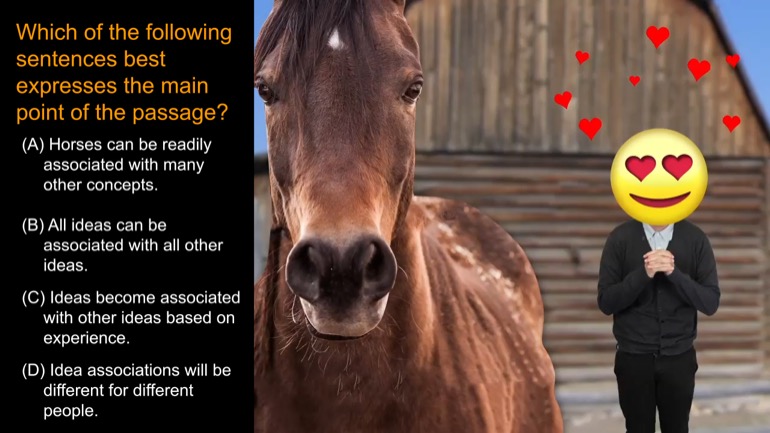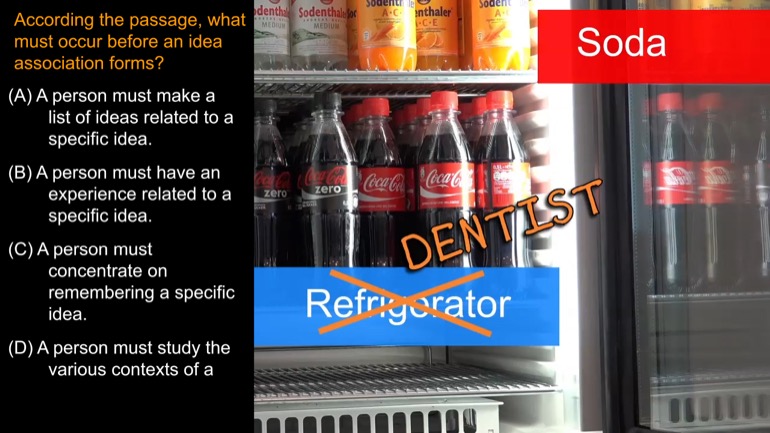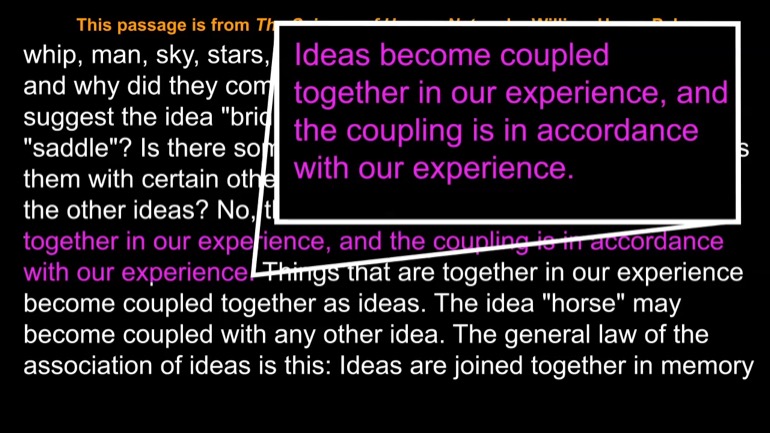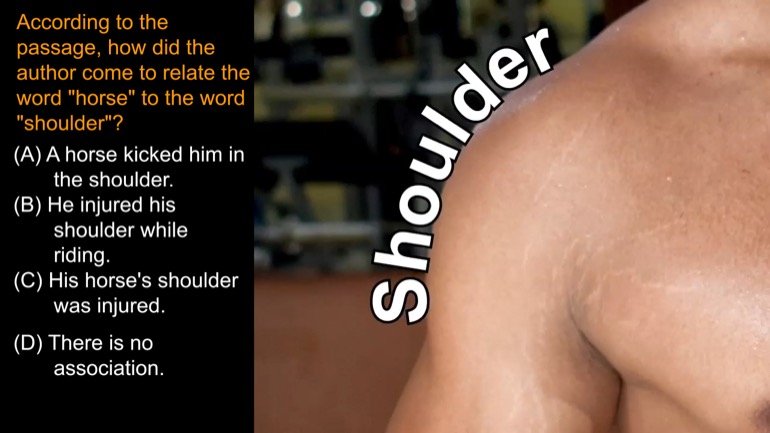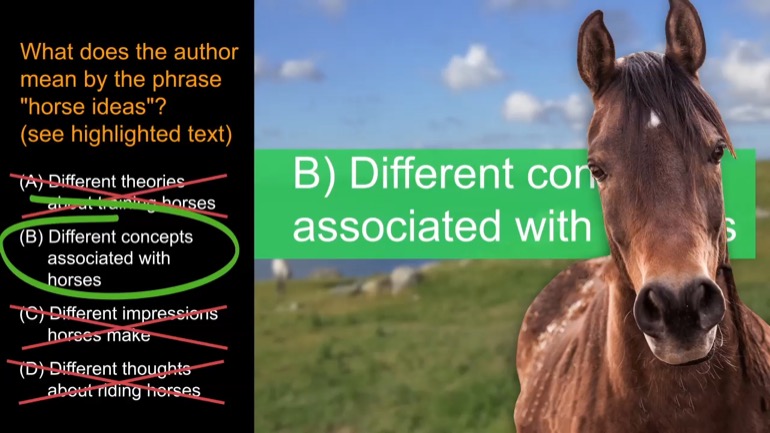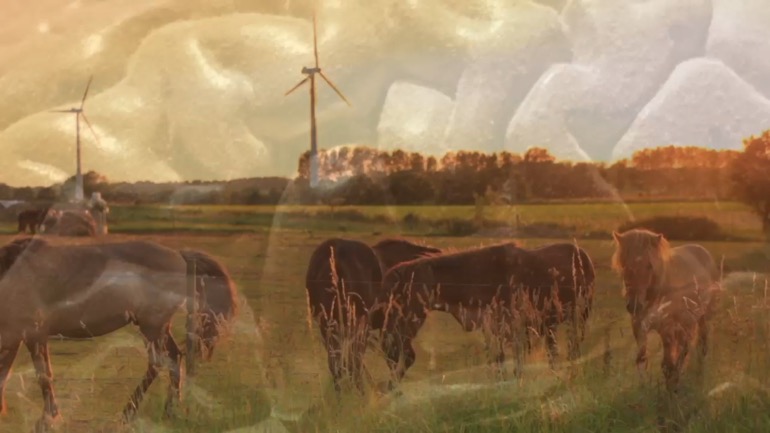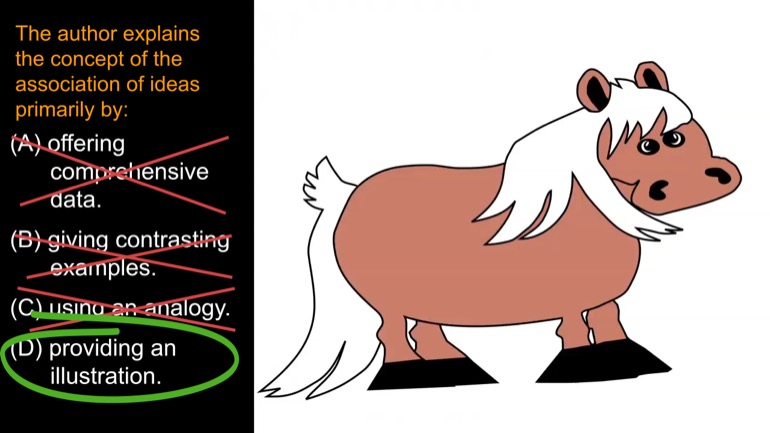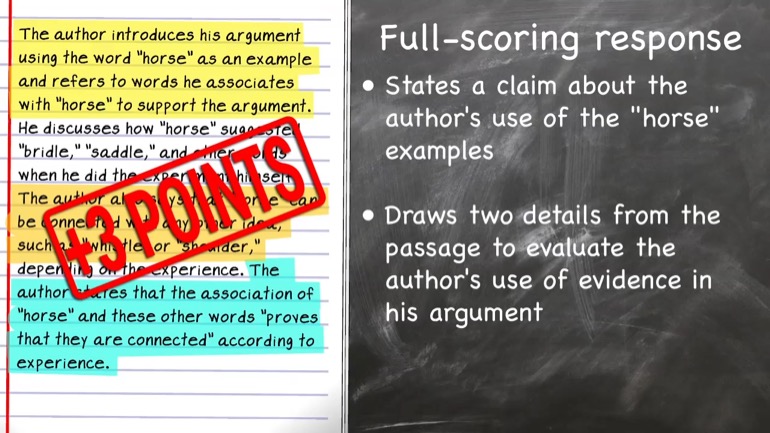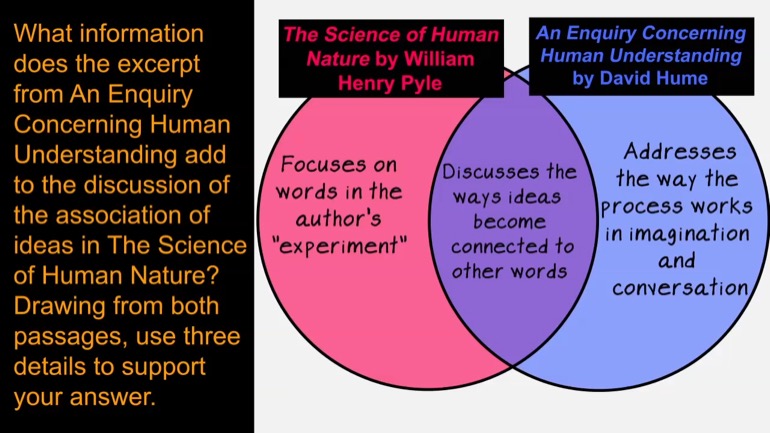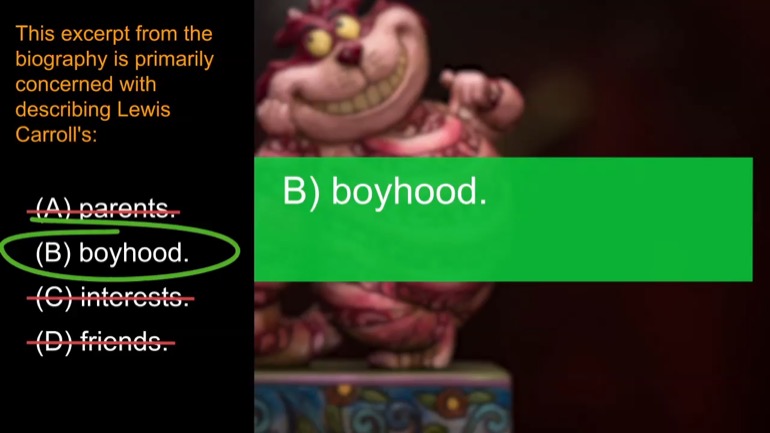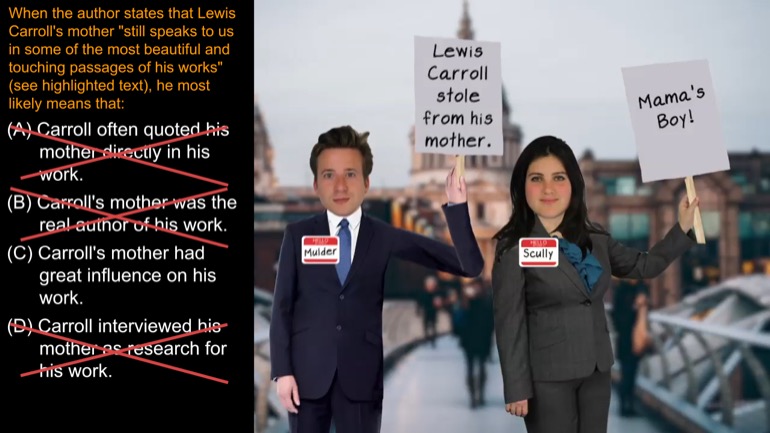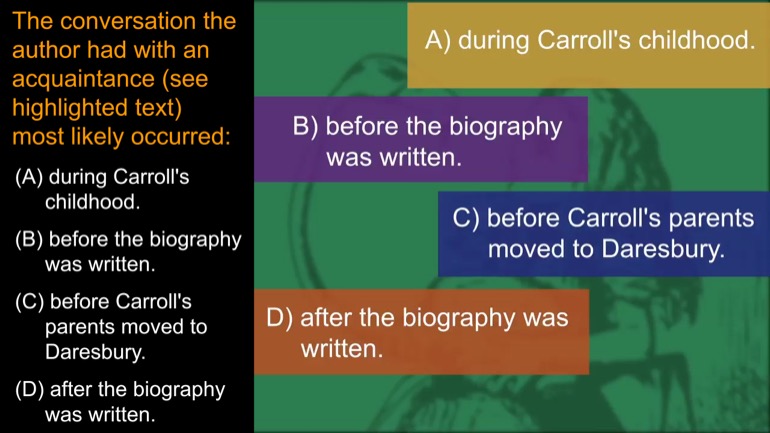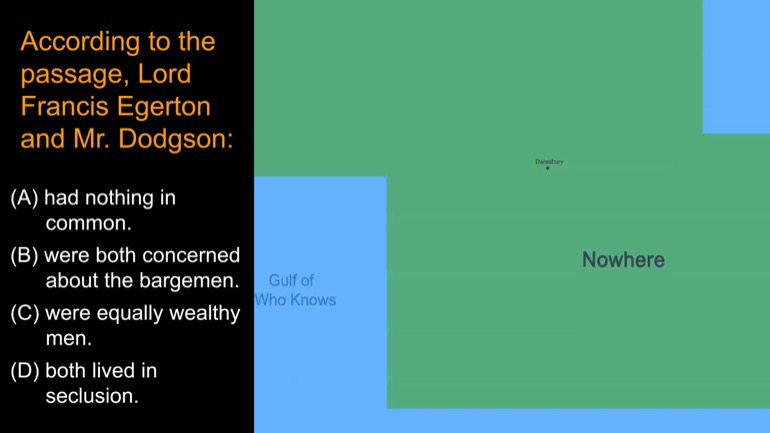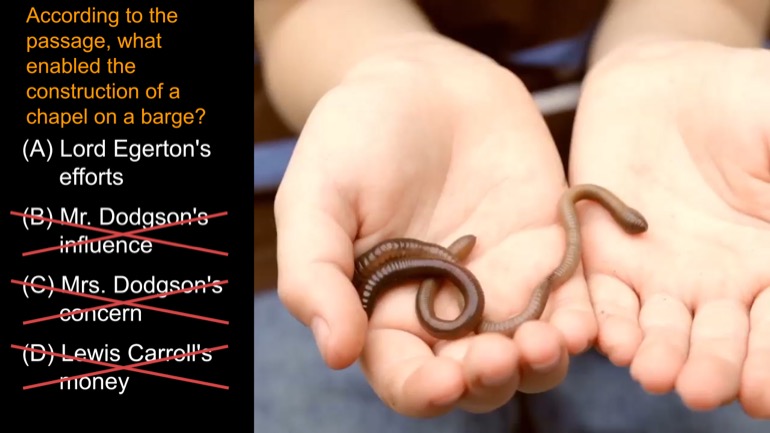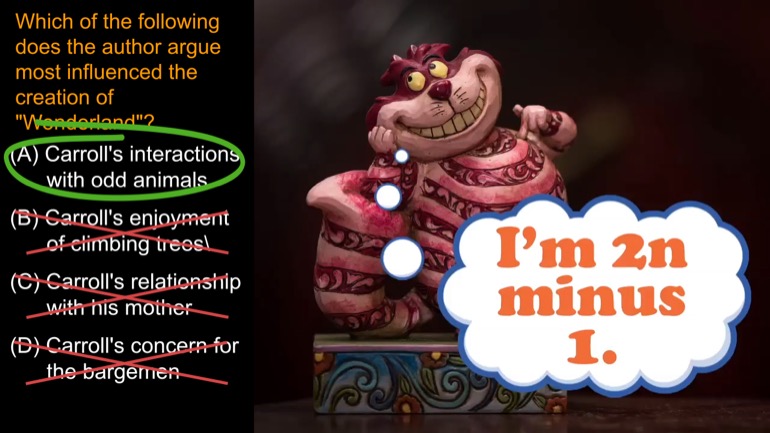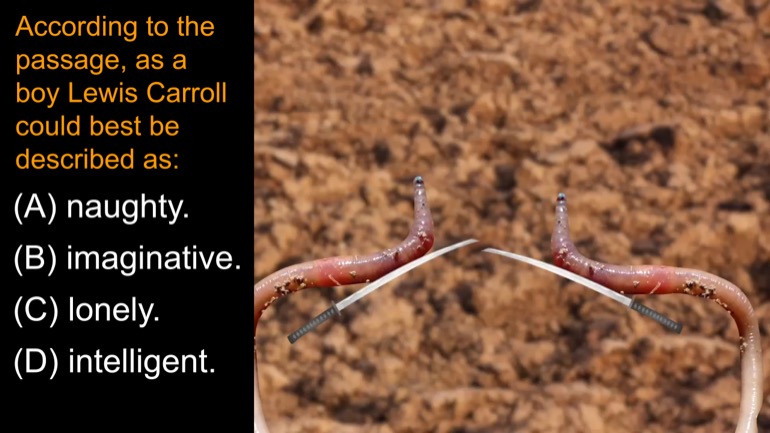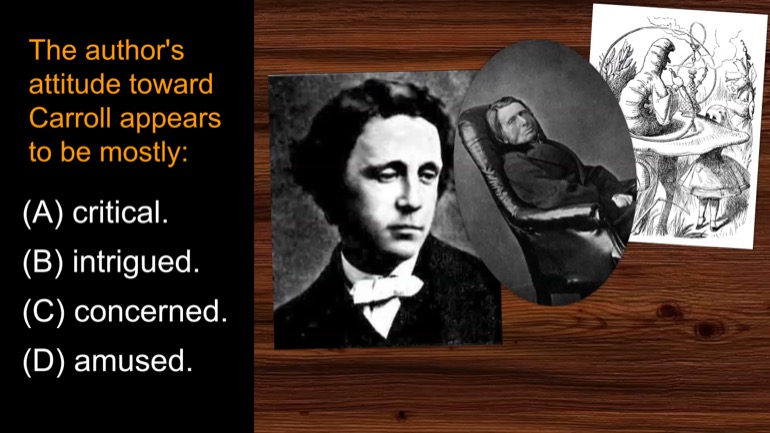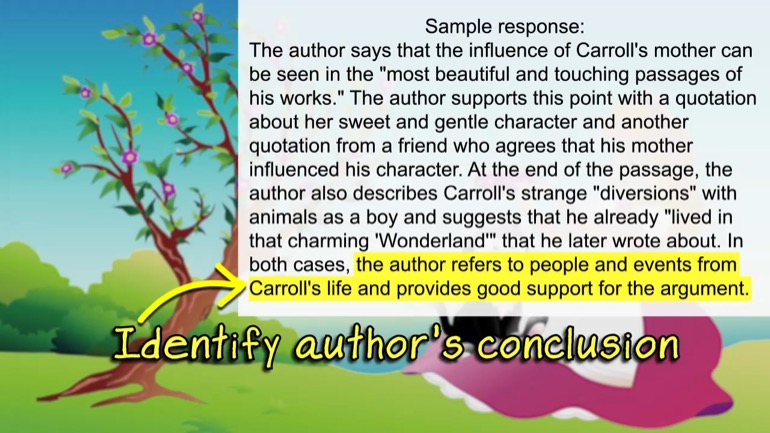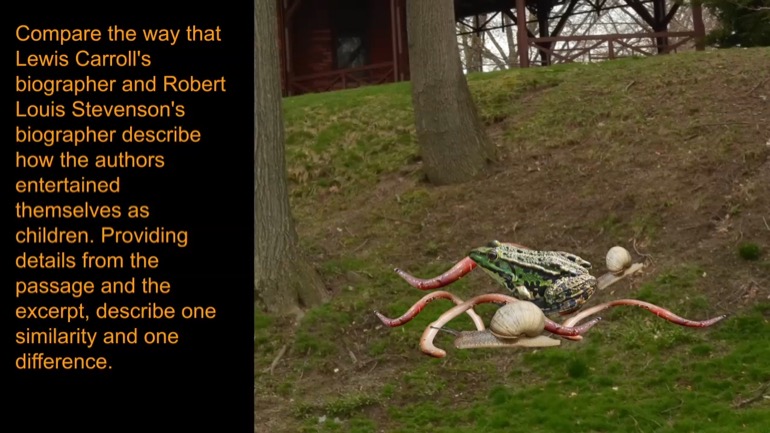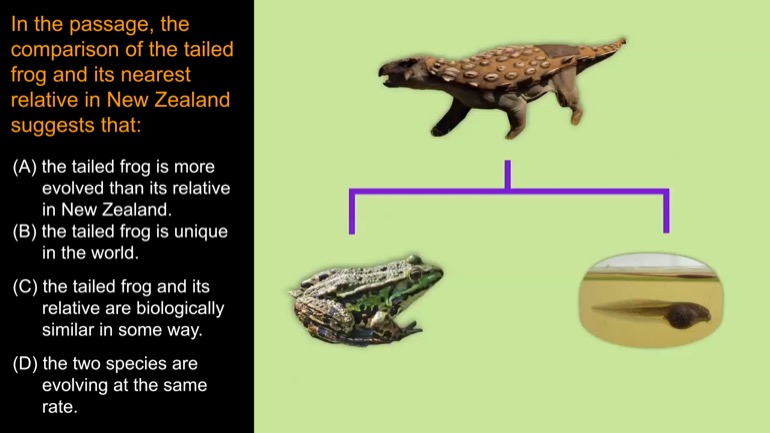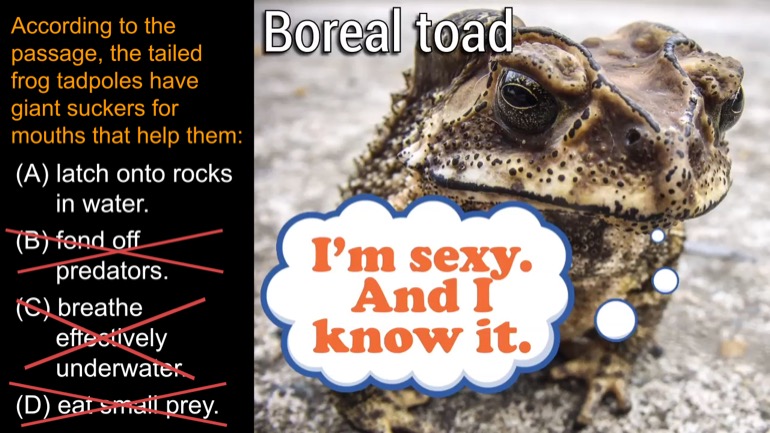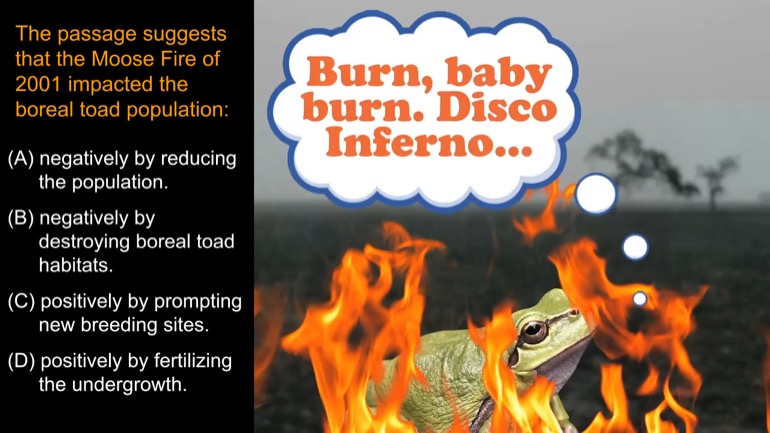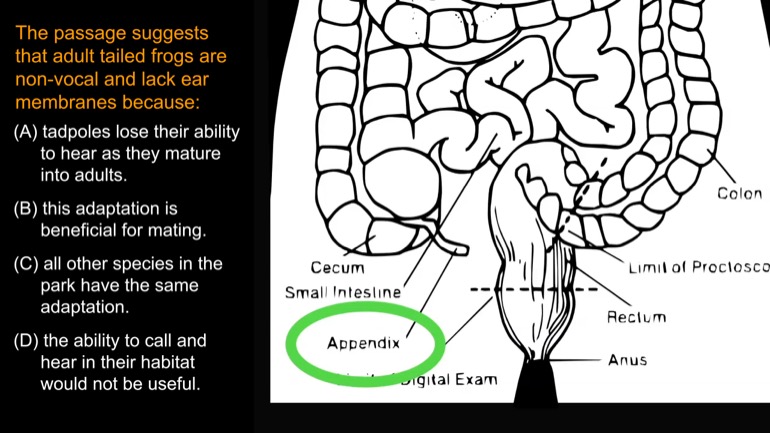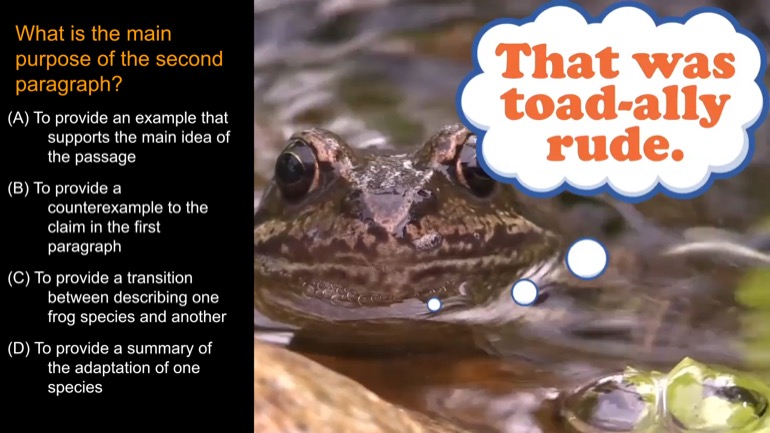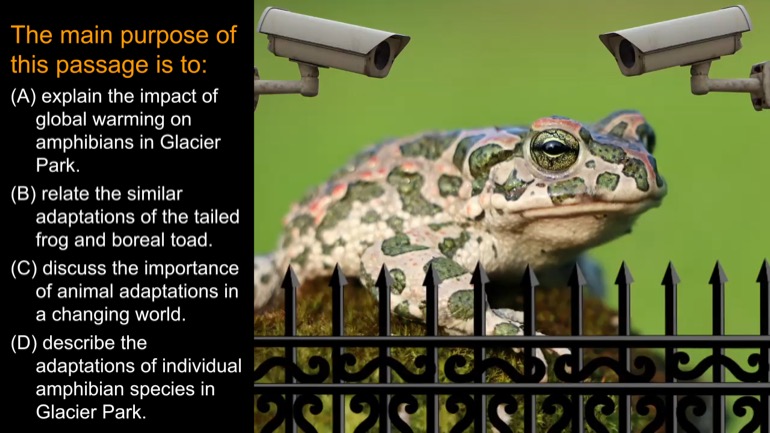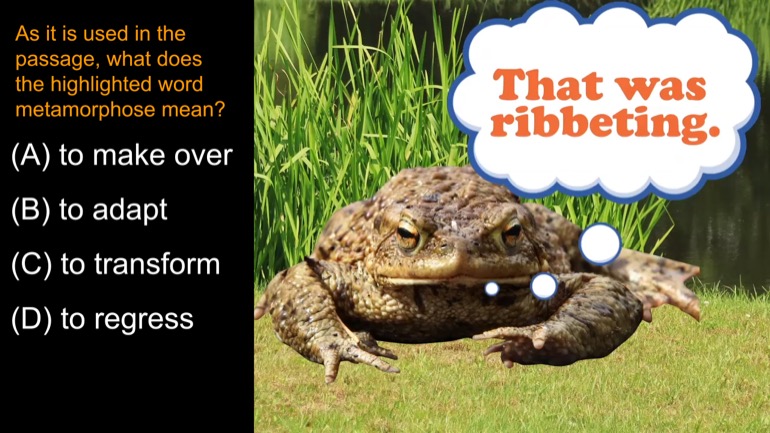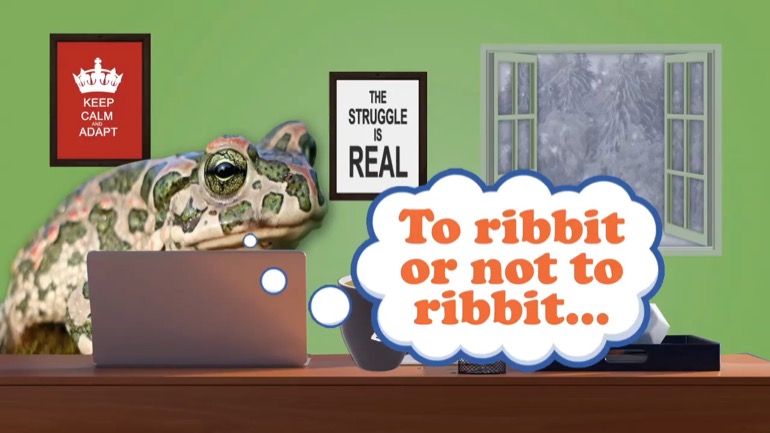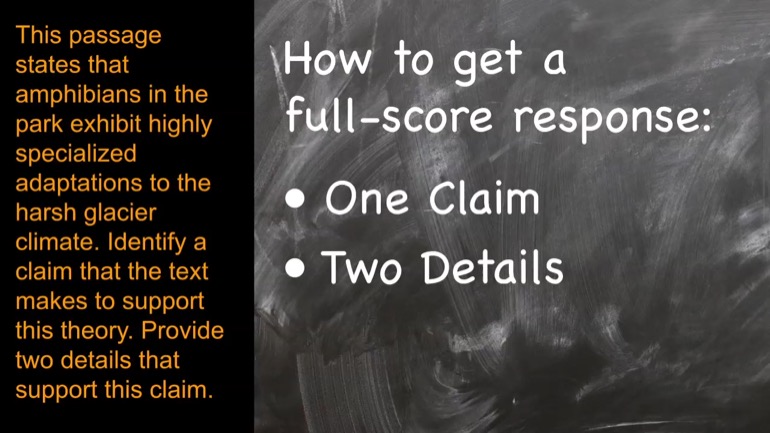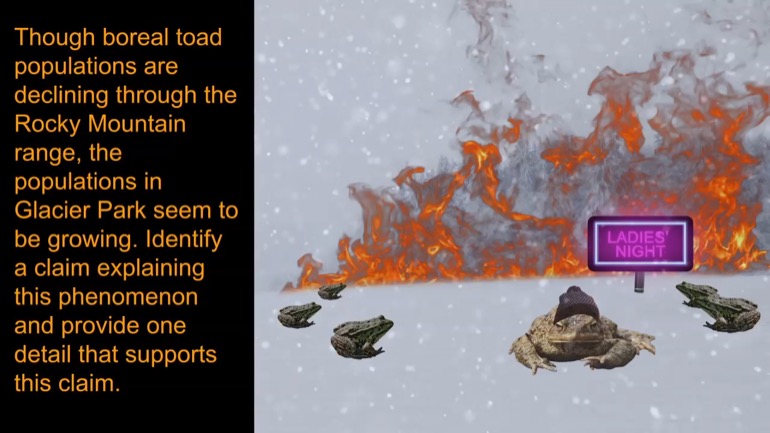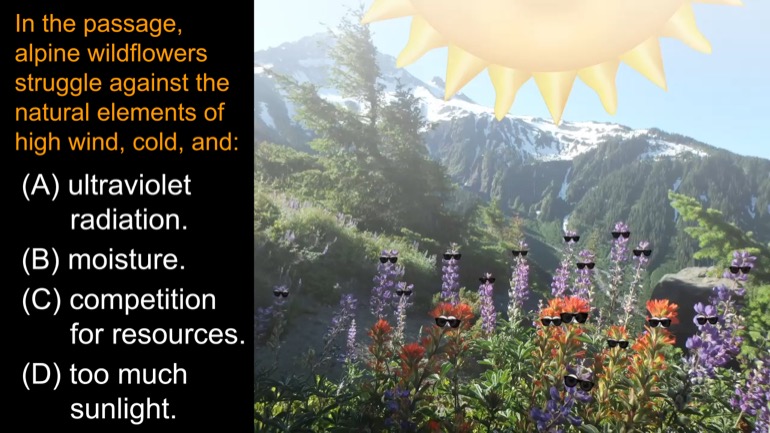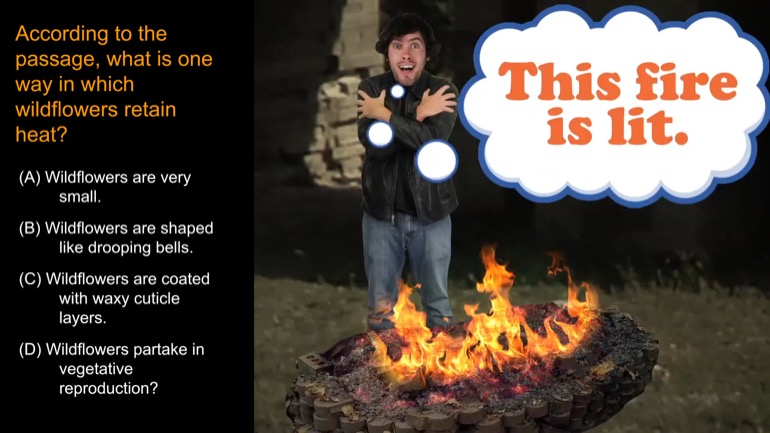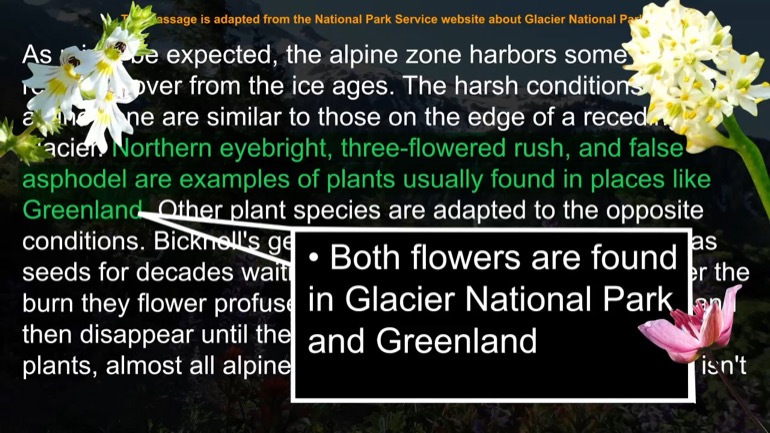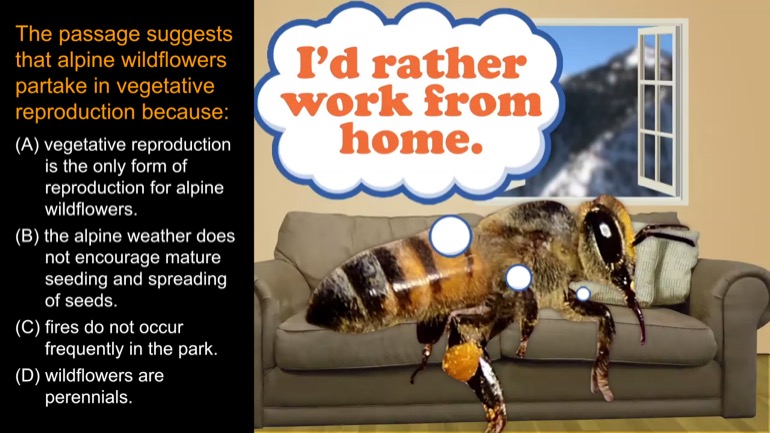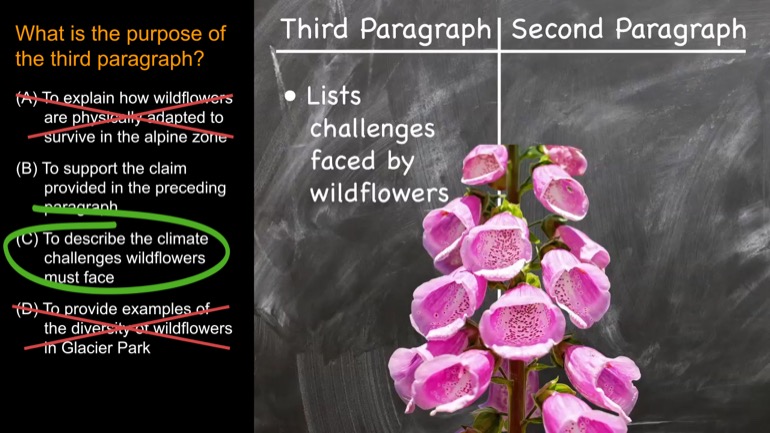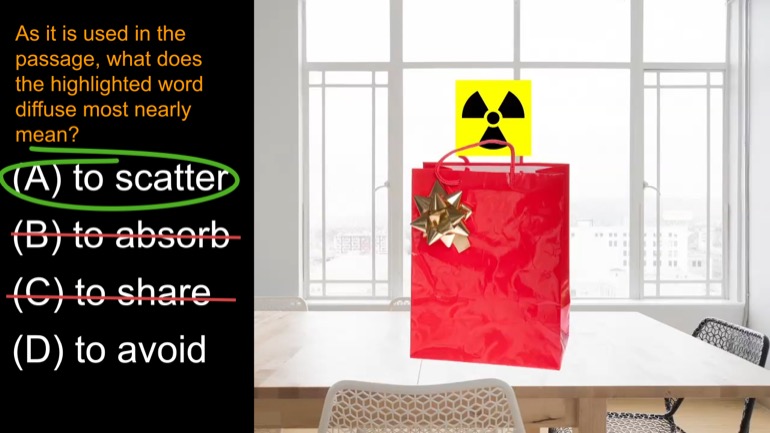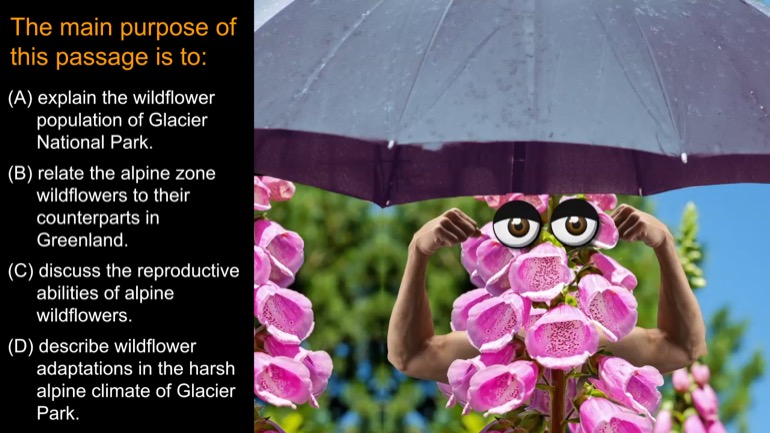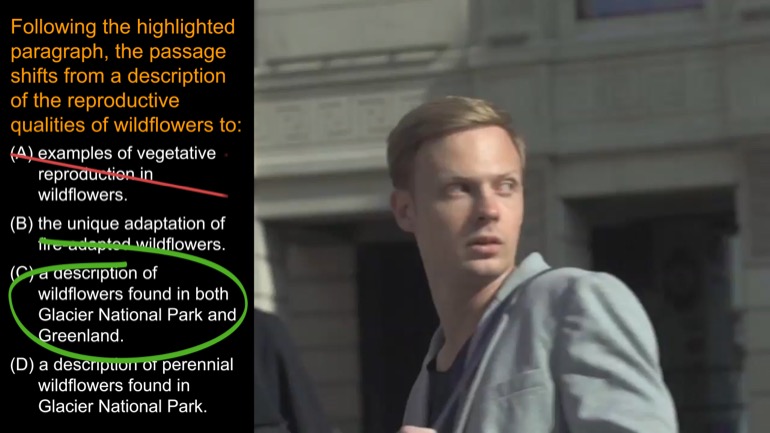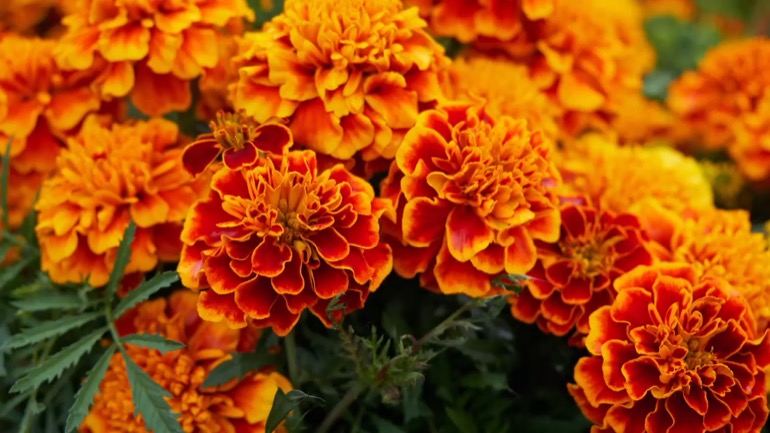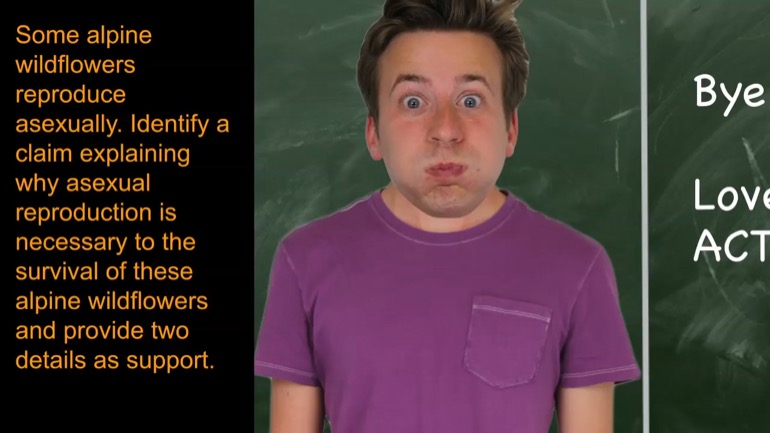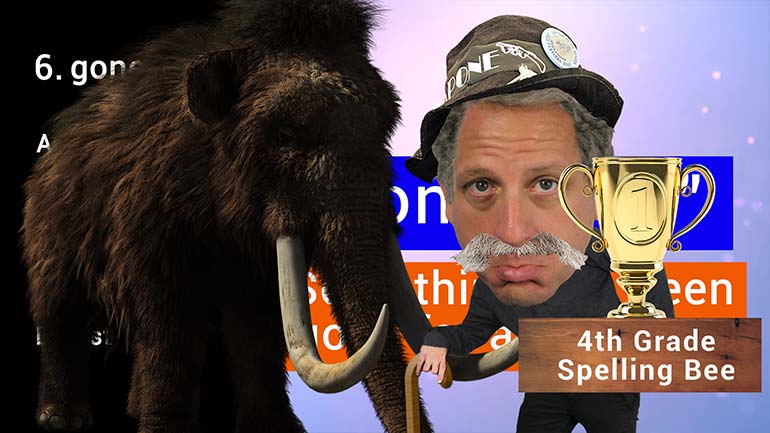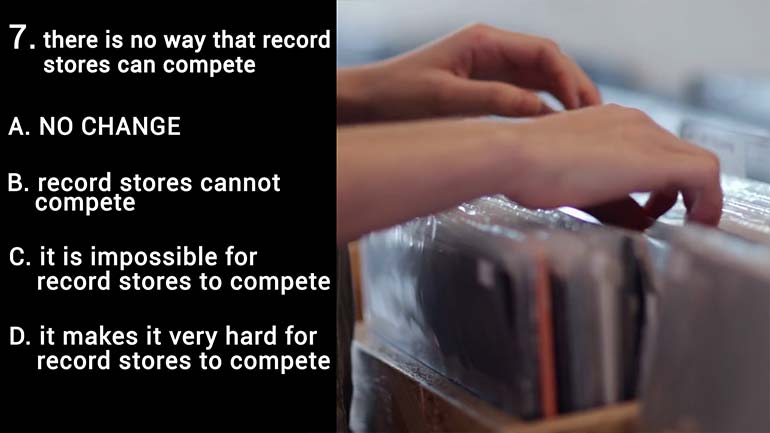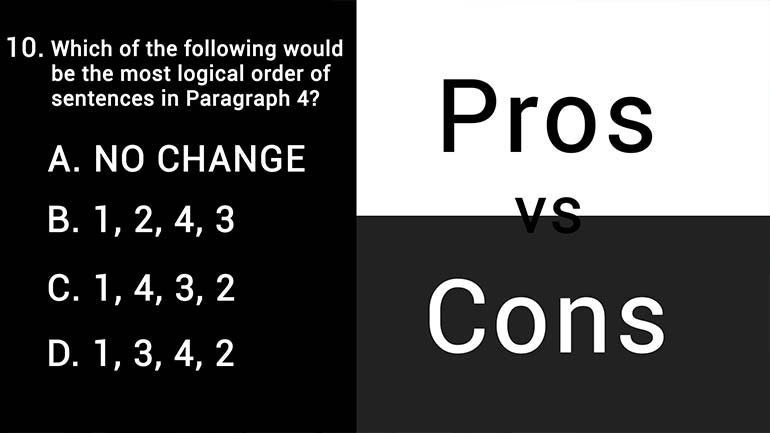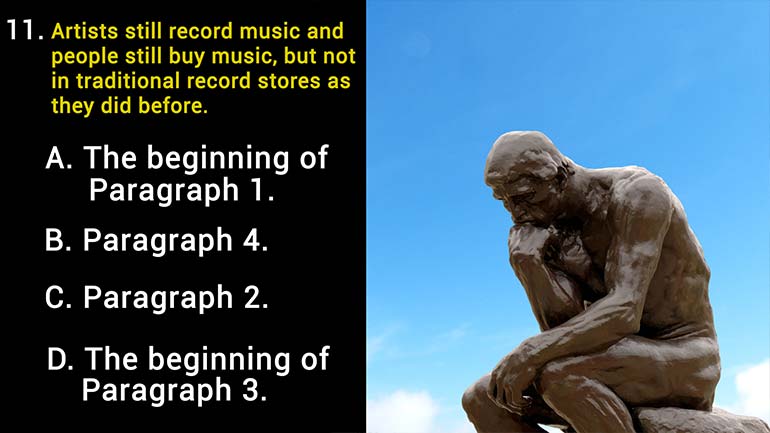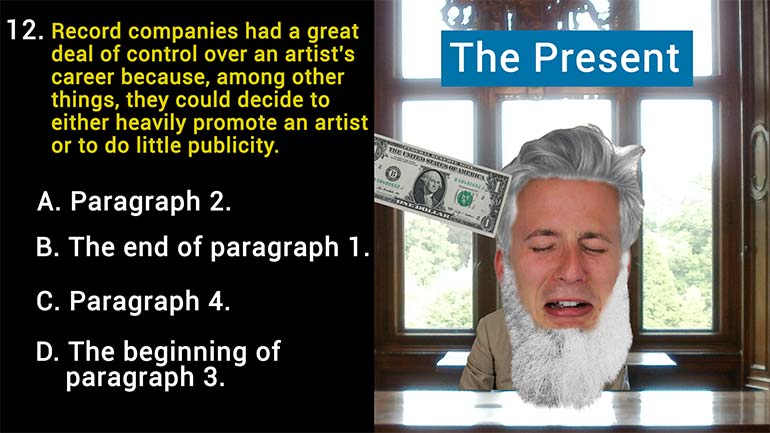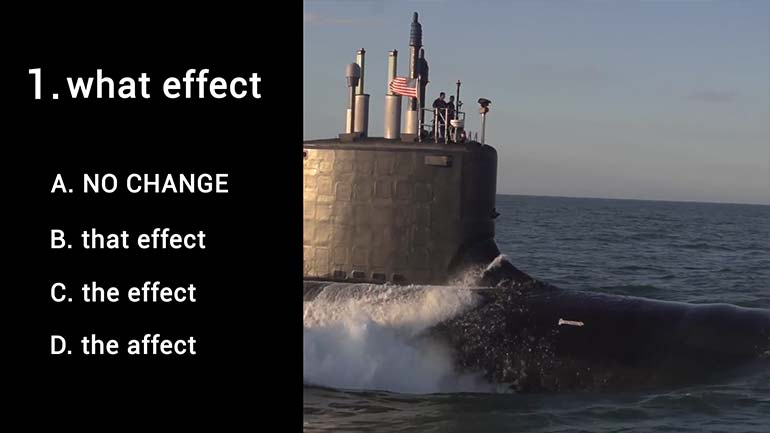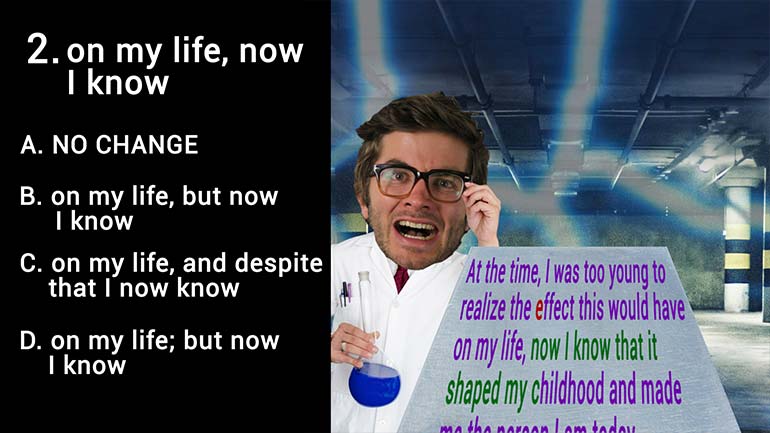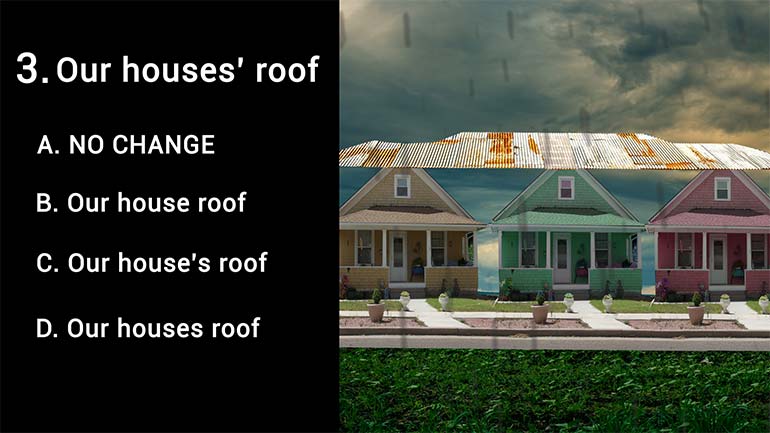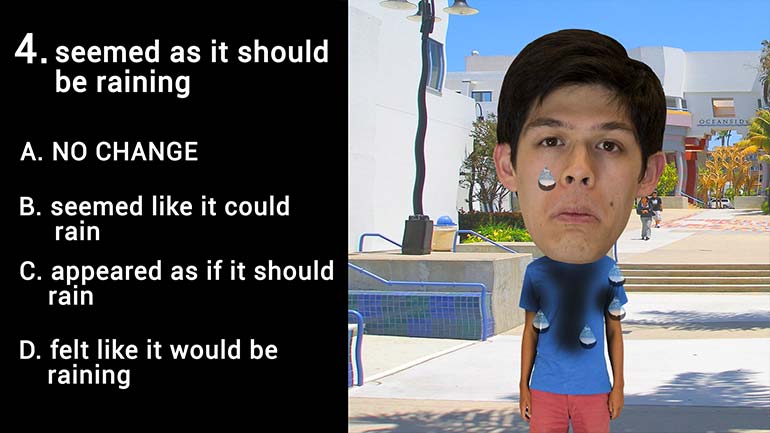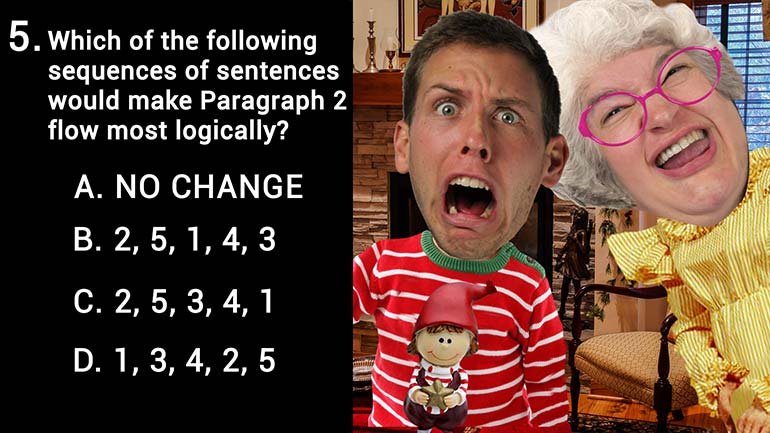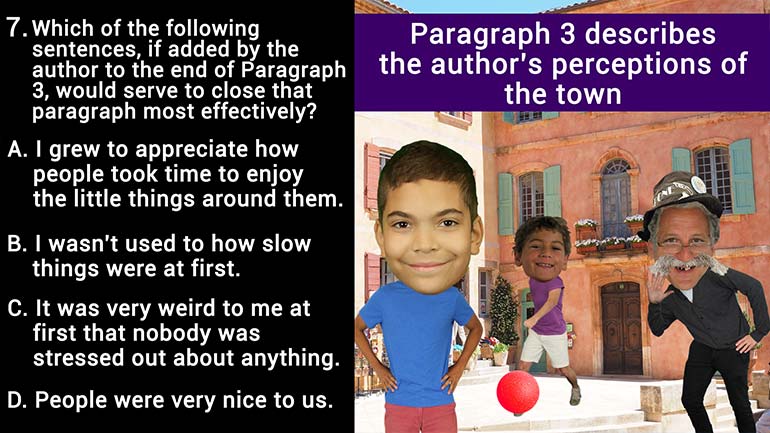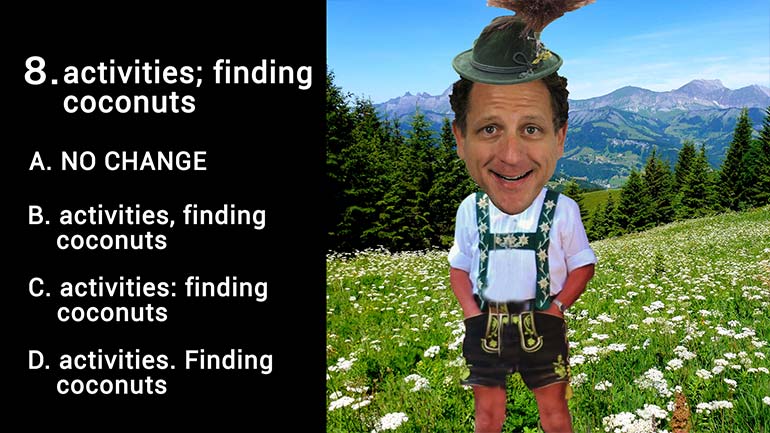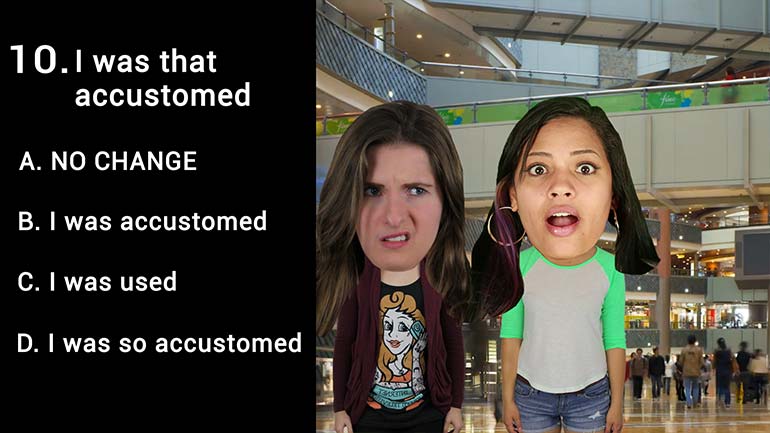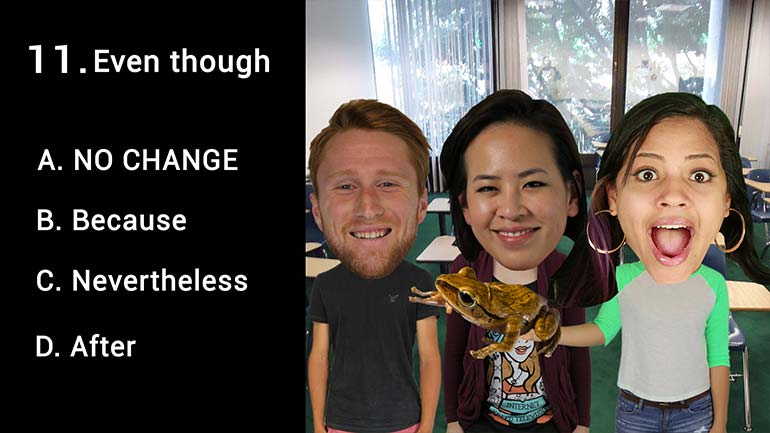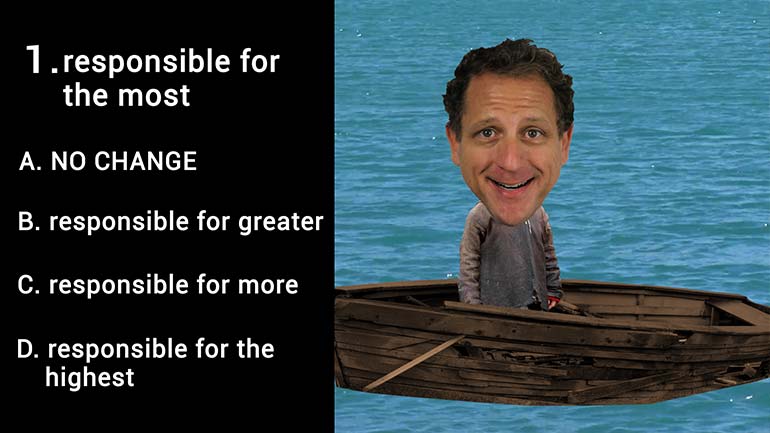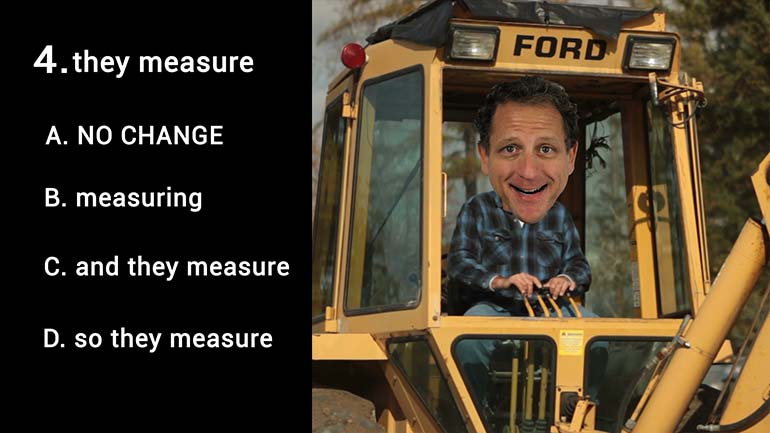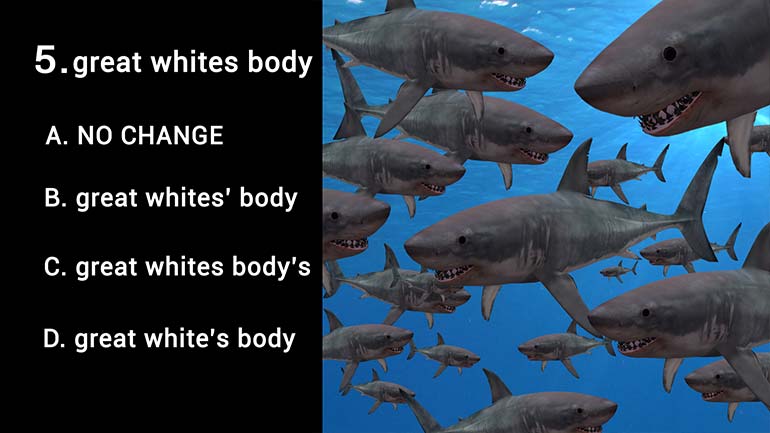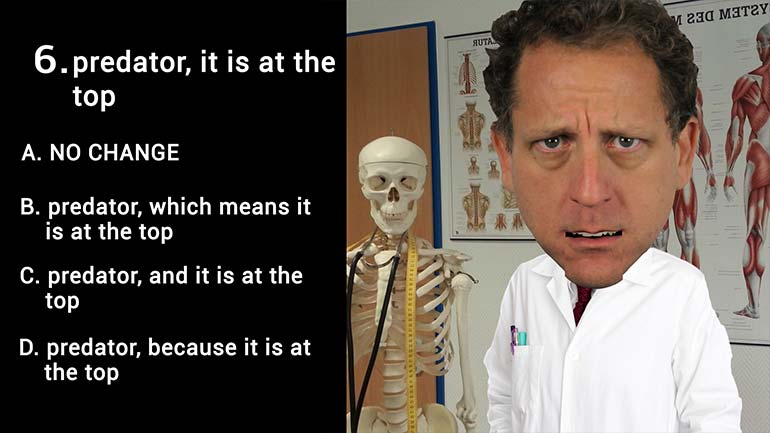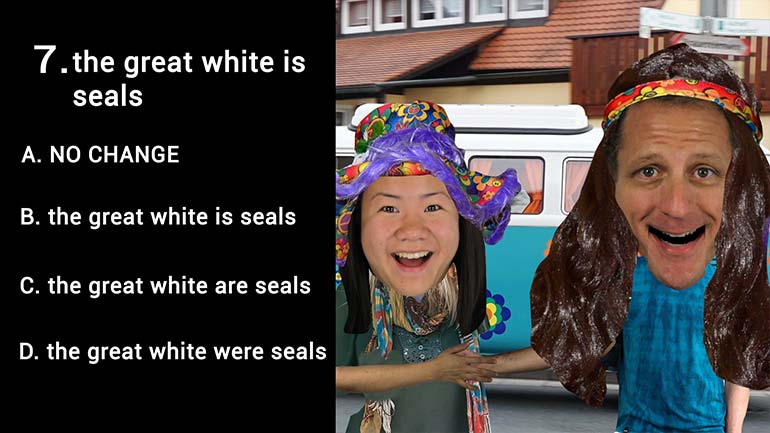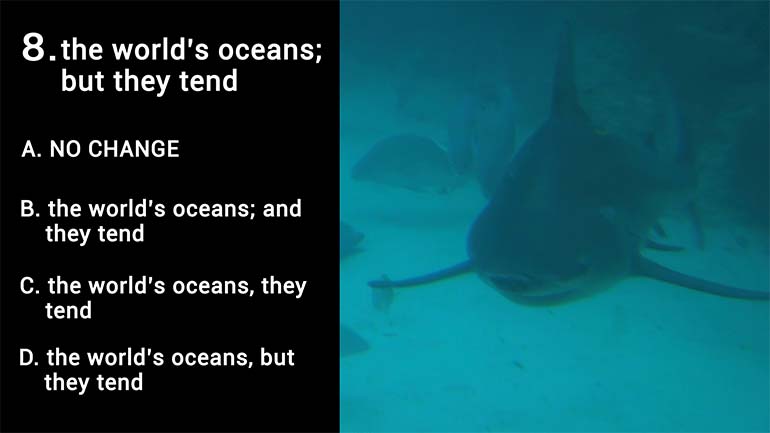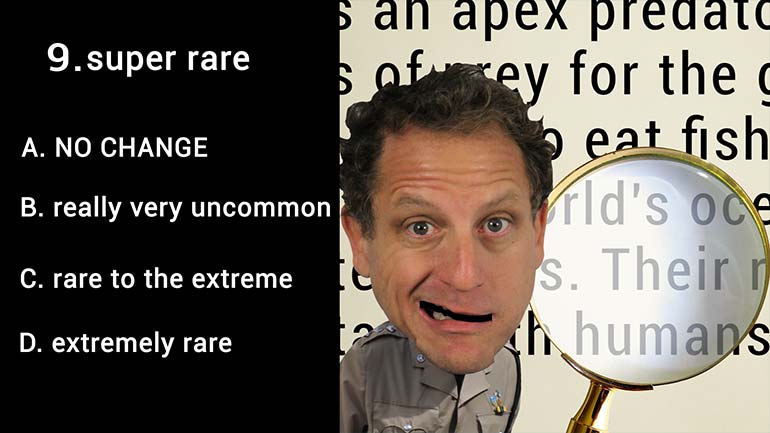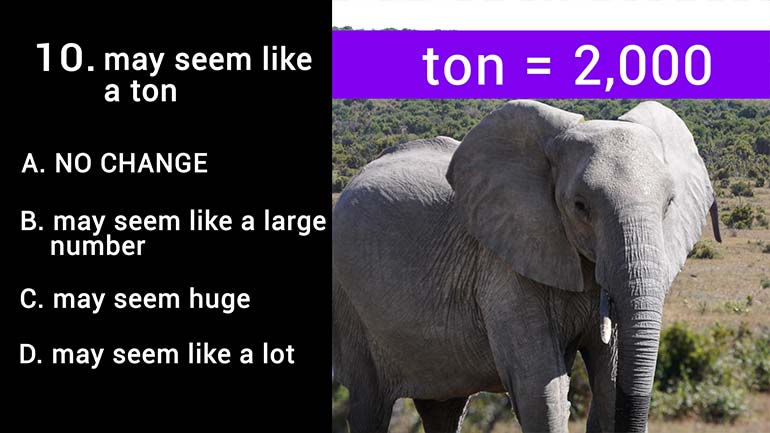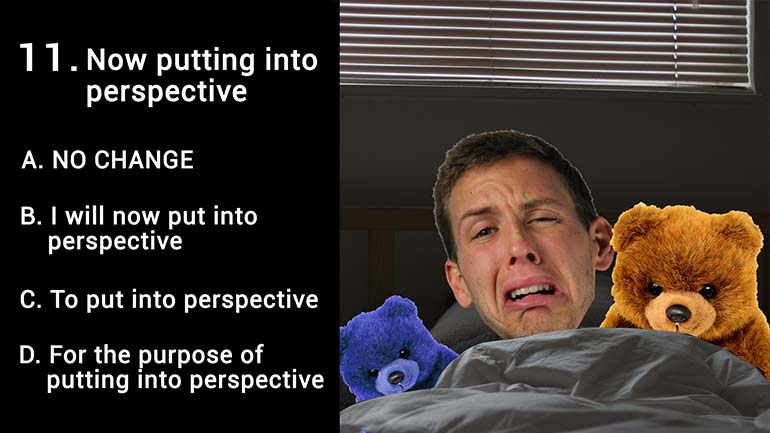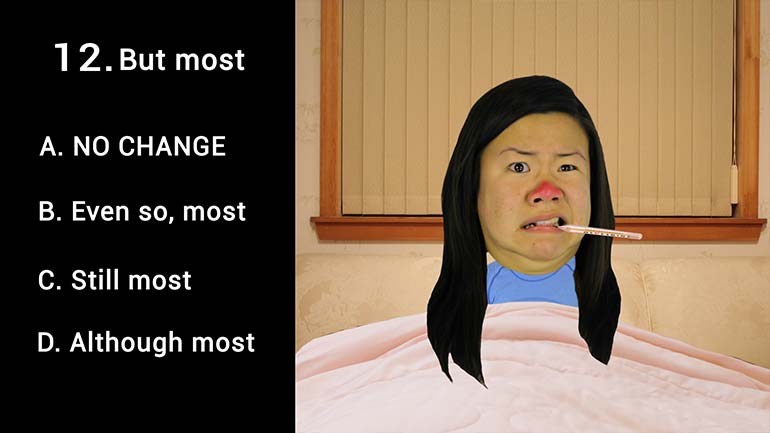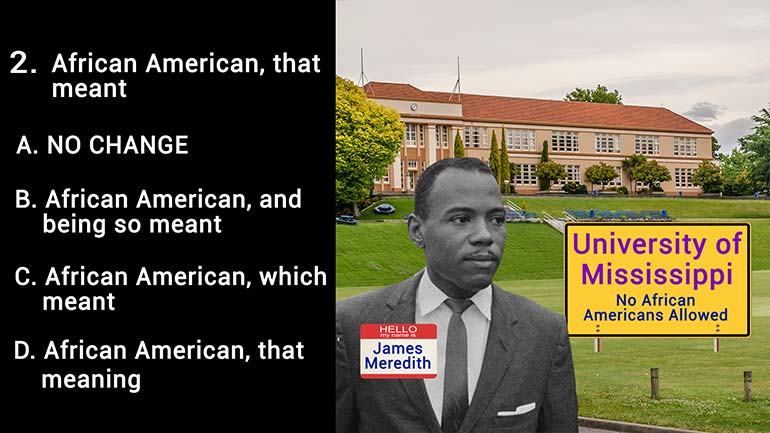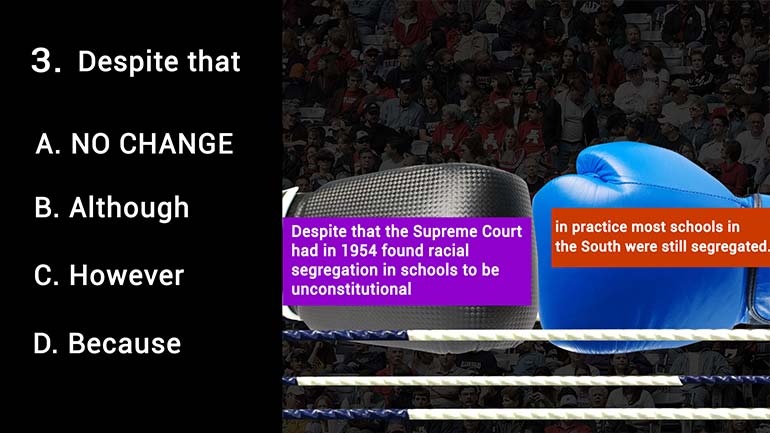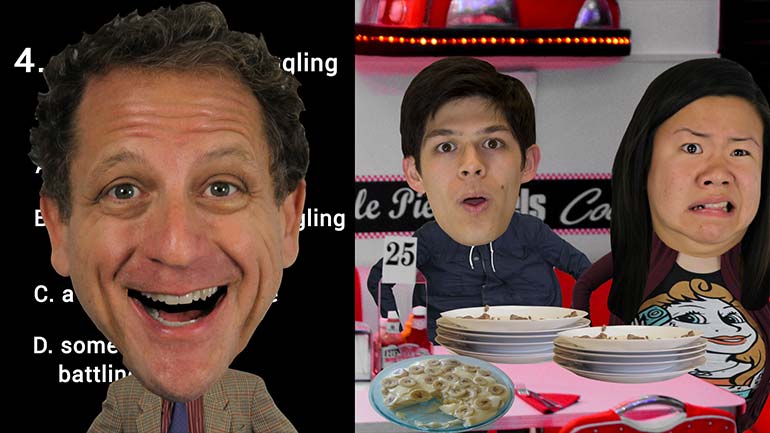ShmoopTube
Where Monty Python meets your 10th grade teacher.
Search Thousands of Shmoop Videos
ACT Aspire Videos 268 videos
Choose the best alternative to the text below.that such a thing is possible
Choose the best alternative to the text below.came to be born
Choose the best alternative to the text below.to record their album
ACT Aspire Reading: Reporting Explicit Details in a Scientific Text 0 Views
Share It!
Description:
In the passage, alpine wildflowers struggle against the natural elements of high wind, cold, and:
Transcript
- 00:01
Okay ct reading people We got ten more for you
- 00:05
here and then we're done And yeah yeah we know
- 00:07
you'll really miss this We're stuck in glacier national park
- 00:11
It snowed and it's icy and we can't get out
- 00:13
All right let's just get down to it Question one
Full Transcript
- 00:15
of ten here in last laughs in the passage alpine
- 00:21
wildflowers struggle against the natural elements of high wind cold
- 00:26
And what all right so here we go Glacier trying
- 00:33
home late Leave a speech of vascular planes looking vessel
- 00:35
looking and watering nutrients there Twenty seven treatments so i
- 00:37
don't know I don't know Name species sidetracked with them
- 00:41
hard and everything Mosses like infinite plane eye catching our
- 00:44
alpine wildflowers Okay here we go We're getting close There
- 00:47
are few sights more beautiful avalanche slow for out by
- 00:49
men of color But going with a beer a grass
- 00:52
and fields were like carpet over the wildlife division Auto
- 00:54
and jamie's I'm claiming late summer program All right nothing
- 00:58
in paragraph two we're still looking There's never a shortage
- 01:00
of color during the brief growing season or the season
- 01:02
short in the alpine zone Extreme winds called knights occasional
- 01:05
snow squalls and intense ultraviolet light make the life of
- 01:09
an alpine wildflower adventurous Alright we think we have our
- 01:13
answer here Ding ding ding ultraviolet light or radiation Well
- 01:17
the alpine wildflowers trap warm to keep themselves toasty but
- 01:21
they do not want to absorb ultra violet radiation The
- 01:24
passage says that some flowers have fine hairs to trap
- 01:27
heat but diffuse or spread out ultraviolet radiation like humans
- 01:31
wild flowers need the sun but uv rays you no
- 01:34
way high up in al to There's not a lot
- 01:36
of ozone The filter amount Those rays can be harmful
- 01:39
and plants can't exactly the lather on the you know
- 01:42
sunscreen Fifty So that's it It's answers A ultraviolet radiation
- 01:46
and the loser ball here Well let's say wildflowers don't
- 01:48
struggle against moisture It's what They're a lot So give
- 01:51
it to be actually need moisture and they work hard
- 01:54
to keep as much of it as they can The
- 01:56
alpine tundra is also pretty lonely so wild flowers don't
- 01:59
need to confer Pete for resource is so you to
- 02:01
seek And they're the only flowers there In fact sometimes
- 02:03
they work together in cluster to conserve warmth and moisture
- 02:06
Finally too much sunlight is not a problem You know
- 02:09
where it is In fact wildflowers want as much sunlight
- 02:11
as they can get They're designed to maximize sun soaking
- 02:15
Action is called What is that called It rhymes with
- 02:17
shma oto synthesis Anyway whatever It's a ultraviolet radiation
Related Videos
Which of the following sentences provides the best description of the events in the passage?
Lucy runs to the edge of Kensington Gardens because...
Immediately before Lucy lays her hand on her father's knee, she was...
In contrast to Lucy's reaction to the lady, Mr. Rayburn's reaction is characterized by:
Mr. Rayburn is most likely reading the newspaper in order to:
